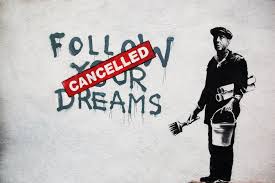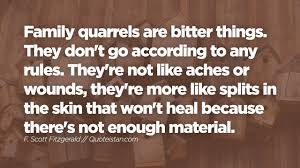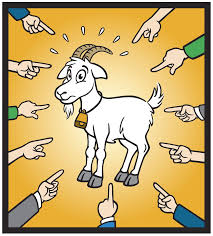
A lot of us have “Good child syndrome”, I made the phrase up (I thin), what I mean by it is “Give your car to your brother/sister”, “You tried to defend yourself and you hurt the feelings of your golden child sibling”, “look after little Tommy”, “don’t talk back to mummy or daddy”, “do as you are told” “mummy/daddy is always right”. If you grew up in a narcissistic family of origin these were not requests, they were orders and the child was forced to comply no matter how uncomfortable, potentially dangerous or humiliating the situation was, the child had to obey because they were voiceless growing up in a narcissistic family of origin, dissidence was severely punished – this is what I call “good child syndrome”.
We take this conditioning/brainwashing into adulthood because we were forced to obey or parents, otherwise there would be severe consequences. We take more abuse from others than most would tolerate, we think that “no” is a mean word and so we are reluctant to use it and it is easy for us to get sucked into other people’s dramas.
It happens when no matter how hard you tried as a child you were never good enough. If you did what they wanted you to do, they either raised the bar or dismissed your achievement as insignificant, either way a child wants to get the approval of their parent(s) and will try even harder but it never happens in the narcissistic family.
Society will tell you “to look for the good in people”, “to be open, honest and frank” with your partner, family and friends, to share fears and insecurities as it is that very vulnerability that makes people feel connected. You will be told that love is the most important thing in life and to love your family (unconditionally) and friends. WARNING This “advice” will not end well if you are dealing with a narcissist in or outside your family. Love to a narcissist is all about control and power, if you grew up in a narcissist family you will have learnt that love hurts, love leaves you voiceless and love is all about the eradication of your own needs and dream in order to serve another.
If your family of origin has narcissists in it, they do not love you. It is a hard one to take in, but it is important to register this fact (even though they will tell you they love you, look at their actions not their words). It is therefore a futile exercise to try to get them to “love you back”. What they want from you is not love, they want your resources, your energy, attention, time and money. Going back to the same source and looking for love again and again is not a good idea because it simply isn’t going to happen. You have to decide what you want from your “relationship” with your family members and proceed accordingly. This might mean “no contact”, “low contact” or accepting the status quo as it is and implementing damage limitations. The decision is yours and yours only and if one approach doesn’t work you can always change tactic. The important thing is that you protect yourself and put up healthy boundaries.
In romantic relationships, we are told by society to have the courage to open our heart to others, to trust other’s good intentions and to believe that the other person is committed to doing the best s/he can for you and others. This simply isn’t so with narcissists. They will tell you that their intentions are impeccable and beyond reproach but that is a lie and we can very often find ourselves very involved before we realise that we have been duped.
There are a few things that are necessary to understand here:
- If you have been raised by narcissistic parent(s) your needs will not have been met, and nor will your requests have been listened to or acted on. It is highly likely that you stopped asking people to do things for you a long time ago. However, you cannot expect people to know what you want, so tell other people what you want and closely monitor what they actually do, not what they say they are going to do.
- You will probably have very low expectations of others and will probably feel that if someone does or gives you something that you have to “pay it back with at least 100% interest”. Again, that is the contract that your narcissist parent(s) brought you up with and it is not healthy.
- Accept in a partnership that as individuals, you do not have the same appetites for different things. This could be sex, food, socialising, the need for “down time”, time spent on a hobby and so forth. If your partner does not want to socialise as much as you do, it is not necessarily a snub, it is just that s/he is not as gregarious as you. However, if your partner does not want to do anything with you, you find that you have no core beliefs/values in common or more importantly the values the they said that they held true don’t stand the test of time – that is a red flag.
- If the relationship feels uneasy or skewed in some way, but you cannot quite put your finger on it, trust your instinct it is probably right, even if you cannot put a label on what it is telling you. You will have been brought up thinking that “what I want doesn’t matter” and since it has been so ingrained in you, you might not even see it as a problem.
Trust issues are considered by many to be a weakness, a lack of generosity and in some way a failing, that will make you feel miserable and constantly dejected and untrustworthy yourself. That is a common pop psychology take on it. The reality is that a certain amount of caution is a really healthy thing. You would not march up to an animal that you had never met before without any discretion. So be discerning without being suspicious. Use your judgement without being judgemental.
We are told to serve others and be kind whenever you can. This is also a very dangerous concept around narcissists because they will take advantage of this and take whatever they can get and give little or nothing in return, if they give something back, no matter how small, they will see it as a purchase, either to encourage you to keep giving or to pay off their “debt” to you. Society will tell you that “you should not give to receive”, but with a narcissist you have to be very careful that you are not giving and giving because they will never stop taking. It is up to the giver to decide when they have been given enough. A narcissist will suck you dry and then walk away without the slightest bit of remorse when they see that you have nothing left to give them.
So examine how much of you “good child syndrome” habits you are bringing to your adult relationships (not just with partners but with friends and family too) and check your relationships on a regular basis to see if you are being pushed around and being disrespected. The more you let people disrespect you (the more tolerant you are of their bad behaviour) to more they will push at your boundaries. Your responsibility is to yourself first and don’t beat yourself up about this, you were repeatedly taught the same lesson over and over again that you want doesn’t matter. You were a great attentive child and you just learnt a very unhealthy lesson too well!





